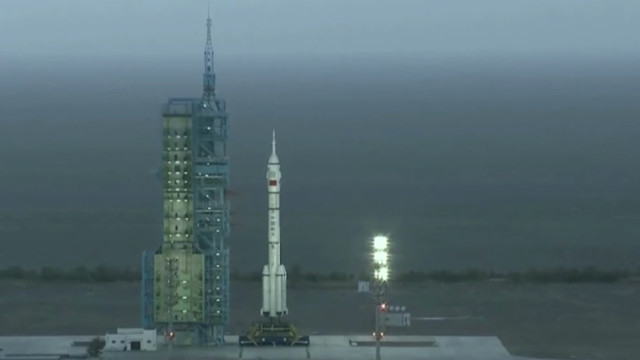China’s first cargo-carrying spacecraft that launched Thursday is a key part of China’s space station project.
It represents another milestone for the country’s rapidly developing space program.
CGTN’s Hendrik Sybrandy reports from Denver.

The country’s growing space program has not gone unnoticed.
“They’re very ambitious, they have big goals, they have big plans,” said Brendan Curry, Vice President of the Space Foundation, which recently held the Space Symposium in Colorado Springs, Colorado. The annual gathering attracts space industry professionals from dozens of countries. Fifteen space agency leaders attended this year’s symposium, including one from China.
“They’re definitely looking at things that would differentiate and highlight their technical capabilities.”
China’s space program has been around for decades. China is the third country to launch a human into orbit. It’s the third country to reach the moon. Its lunar rover, nicknamed Jade Rabbit, captured the public’s attention several years ago. It was an example, one expert said, of China’s modern touch.
“A mission needs to have more than just its scientific, content it needs to inspire, it needs to excite, it needs to explain,” said Michael Simpson, Executive Director of Secure World Foundation. “It’s significant because it does show their capacity to rendezvous in space. These are all technical skills that must be present if you’re going to sustain missions in space, especially human missions in space.”
The Tianzhou-1 is a cargo ship that docked with the Tiangong 2 space lab. It’s a key step on the way to China’s space station, now planned for 2020.
“This is very important technology demonstration project,” said Tian Yulong, Secretary-General of the China National Space Administration. “We’re capable of sending cargos and supplies including fuel and uplifting the orbit of the space station.”
This November, China plans to launch a robotic mission to return samples from the Moon. Next year, the Chang’e 4 will aim to land on the far side of the Moon for the first time in human history.
 CGTN America
CGTN America

